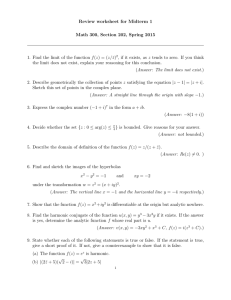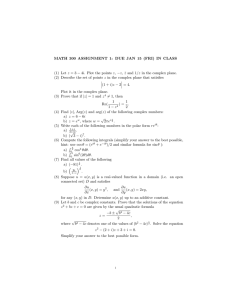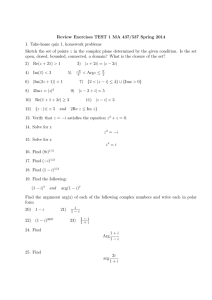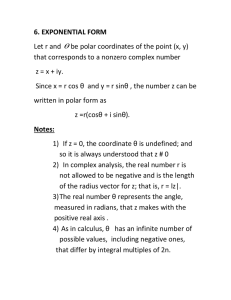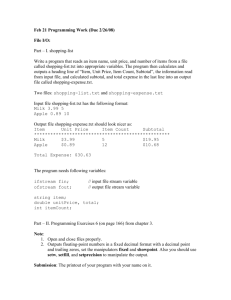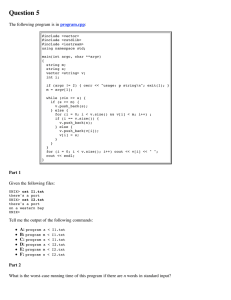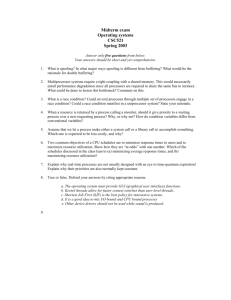CS360 Midterm Exam - March 23, 2011 - Jim Plank jassem
advertisement
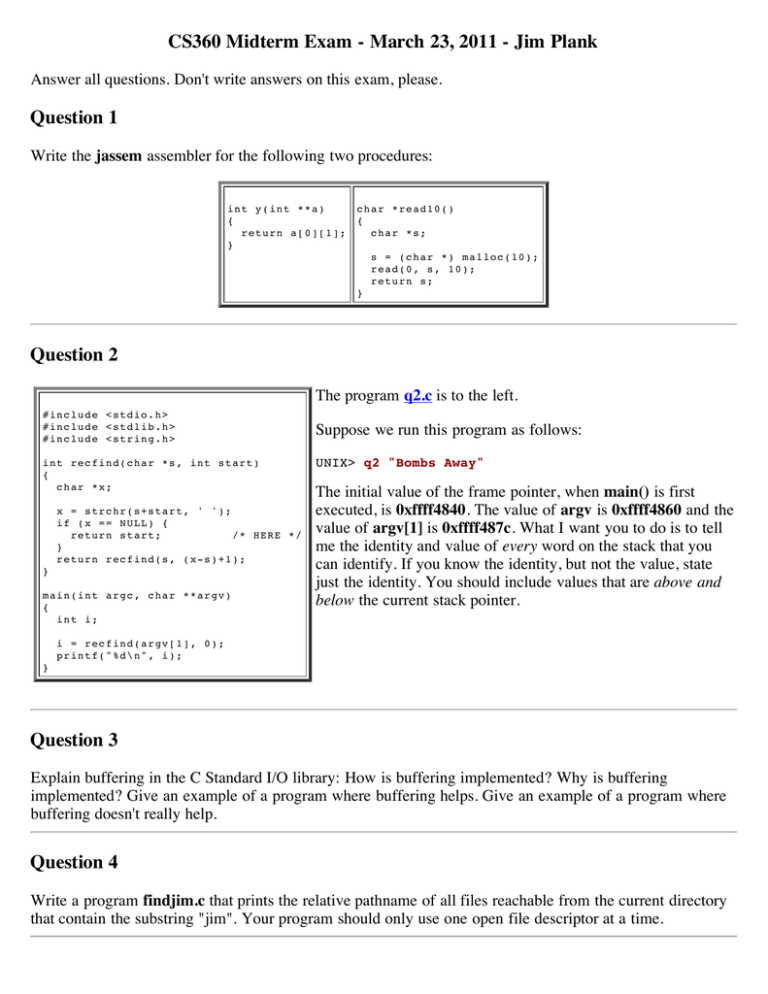
CS360 Midterm Exam - March 23, 2011 - Jim Plank
Answer all questions. Don't write answers on this exam, please.
Question 1
Write the jassem assembler for the following two procedures:
int y(int **a)
{
re turn a[0][ 1 ];
}
ch ar *r e ad 10 ( )
{
ch a r * s;
s = ( c ha r * ) ma l lo c( 1 0) ;
re a d( 0 , s, 10 );
re t ur n s ;
}
Question 2
The program q2.c is to the left.
# in clud e <s td io. h>
# in clud e <s td lib .h >
# in clud e <s tr ing .h >
i nt rec f ind (c har * s, i nt s tart)
{
c har * x;
x = s t rch r( s+s ta rt, ' ') ;
i f (x == NU LL) {
ret u rn st art ;
/* H ERE * /
}
r etur n re cf ind (s , (x -s)+ 1);
}
m ai n(in t ar gc , c ha r ** argv )
{
i nt i ;
Suppose we run this program as follows:
UNIX> q2 "Bombs Away"
The initial value of the frame pointer, when main() is first
executed, is 0xffff4840. The value of argv is 0xffff4860 and the
value of argv[1] is 0xffff487c. What I want you to do is to tell
me the identity and value of every word on the stack that you
can identify. If you know the identity, but not the value, state
just the identity. You should include values that are above and
below the current stack pointer.
i = r e cfi nd (ar gv [1], 0);
p rint f ("% d\ n", i );
}
Question 3
Explain buffering in the C Standard I/O library: How is buffering implemented? Why is buffering
implemented? Give an example of a program where buffering helps. Give an example of a program where
buffering doesn't really help.
Question 4
Write a program findjim.c that prints the relative pathname of all files reachable from the current directory
that contain the substring "jim". Your program should only use one open file descriptor at a time.
Question 5
Behold the program q5.c:
# inclu de
# inclu de
# inclu de
# inclu de
<s tdio. h >
<s tdlib . h>
<s tring . h>
<f cntl. h >
m ain(i nt ar gc, c h ar * *a r gv )
{
int p, u, f, m ;
if ( argc != 4) {
fp rintf (stde r r, " us a ge : q 4 p m u \ n" );
ex it(1) ;
}
p = O_WRO NLY;
if ( strch r(arg v [1] ,
if ( strch r(arg v [1] ,
if ( strch r(arg v [1] ,
if ( strch r(arg v [1] ,
' a ')
' c ')
' t ')
' x ')
!=
!=
!=
!=
N U LL )
N U LL )
N U LL )
N U LL )
p
p
p
p
|=
|=
|=
|=
O _A PP E ND ;
O _C RE A T;
O _T RU N C;
O _E XC L ;
ssca nf(ar gv[2] , "% o ", &m );
if ( sscan f(arg v [3] , " % o" , & u) == 1 ) u ma s k( u) ;
f = open( "f1.t x t", p, m) ;
writ e(f, "XXX\ n ", 4 );
clos e(f);
syst em("l s -l f 1.t x t" ) ;
chmo d("f1 .txt" , 06 4 4) ;
syst em("c at f1 . txt " );
exit (0);
}
I am going to give you twelve scenarios in which you execute two commands from the command line. The
first does "ls -l f1.txt". The second calls q5 with a variety of command line arguments. Your job is to tell
me the output of the q5 call. Don't bother differentiating standard output and standard error and don't worry
about the dates in the files. Just to be clear, ls -l prints:
mode number-of-links owner-username owner-groupname size modification-date filename
If the program has a segmentation violation, let me know that. In all cases, if the file f1.txt exists, it contains
the seven bytes: "Shaft!\n". For this problem, your username is plank, and your group name is staff.
The scenarios are on the answer sheet -- put your answers there.
